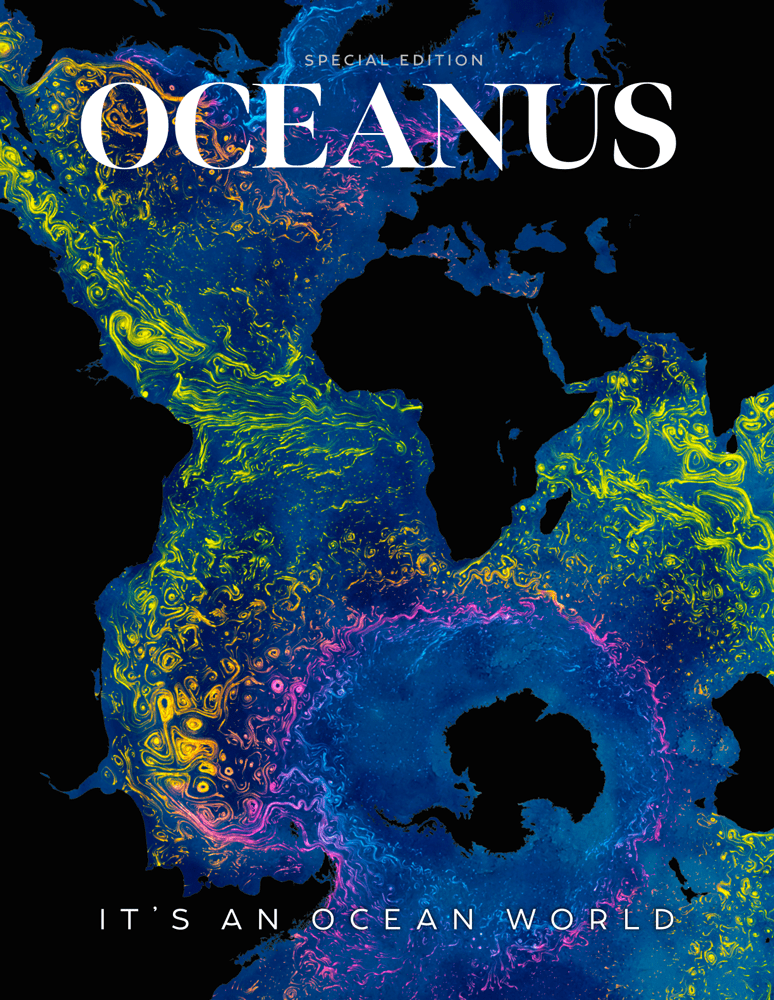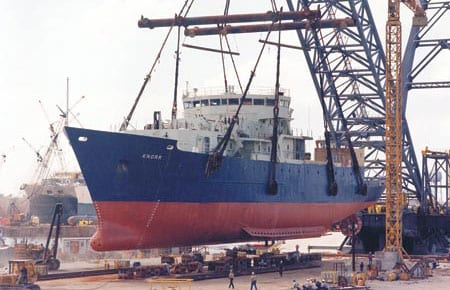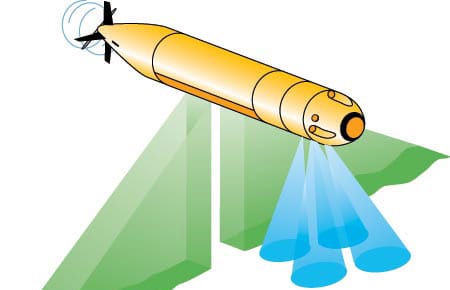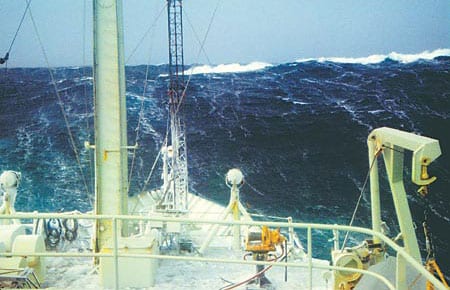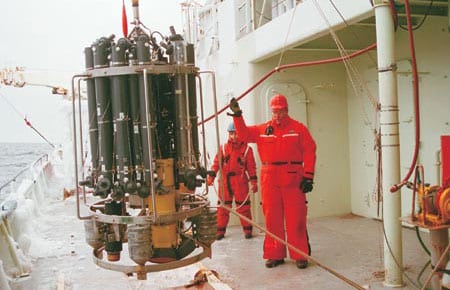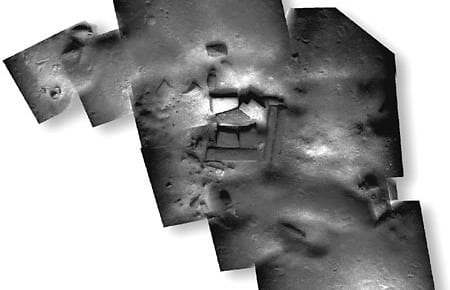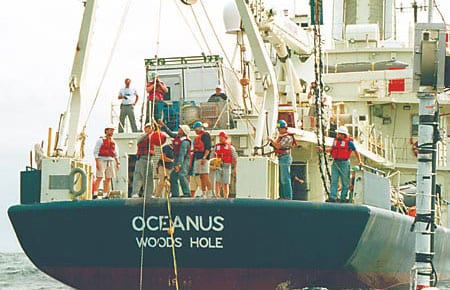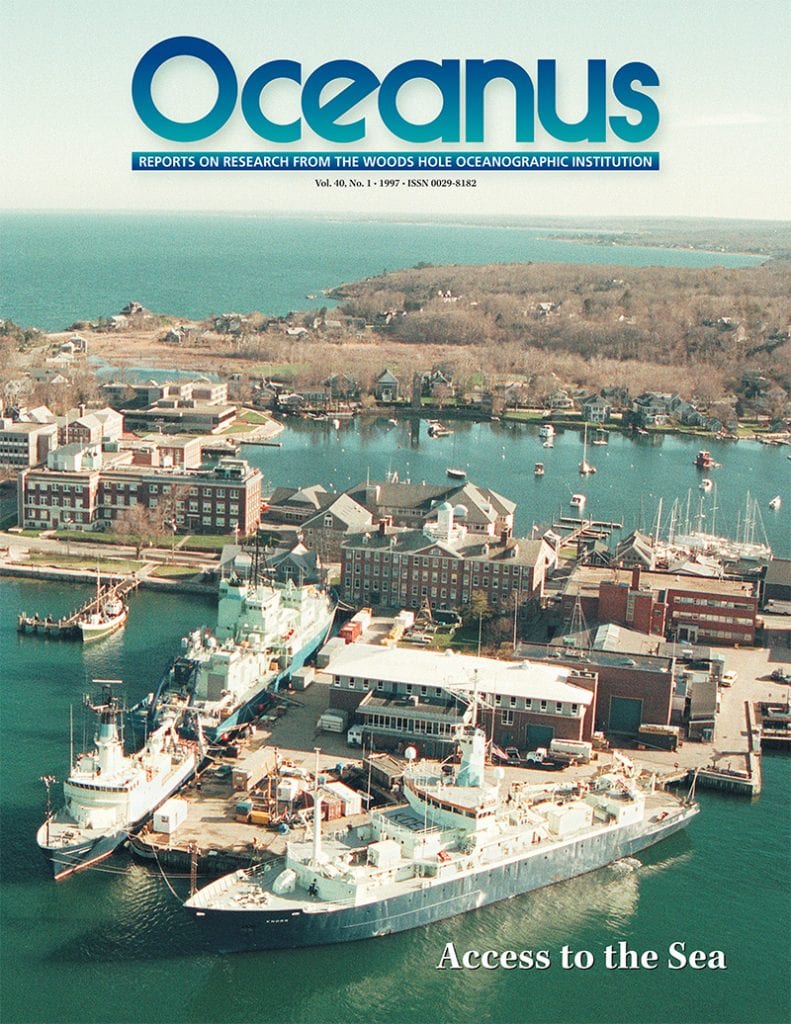
April 1997 ( Vol. 40 No. 1 )
and get Oceanus delivered to your door twice a year as well as supporting WHOI's mission to further ocean science.
Our Ocean. Our Planet. Our Future.
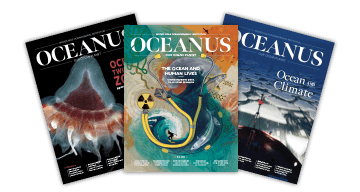
Replacing the Fleet
When R/V Atlantis arrived in Woods Hole for the first time on a bright, beautiful April 1997 day, it represented not only a welcome addition to the WHOI fleet but also the culmination of a 15-year UNOLS fleet modernization.
WHOI and Access to the Sea
In the mid-term future, two WHOI ships (Knorr in about 2006 and Oceanus in about 2009) will reach the end of their planned service lives. There is general agreement that WHOI should work to replace them with two vessels.
A Northern Winter
As the 1996-1997 ship schedule began to take shape in 1995, we learned that Voyage 147 would take R/V Knorr into the North Atlantic from October ’96 through March of ’97. The various science missions would require station keeping during CTD casts, deployment of current drifters, and expendable bathythermograph (XBT) launches, as well as weather system analysis designed to put Knorr in the path of the harshest weather conditions possible during the winter season. Long before the cruise, we began to tap all available assets that would help us with this challenge.
Adventure in the Labrador Sea
The sound of the general alarm bell reverberated through the ship. At 2:30 AM, this couldn't be a drill. Even more puzzling, we were still dockside in Halifax, four hours from our scheduled departure for the Labrador Sea.
"What a Year!"
Four technologies that have been developing separately for some time were brought together this year by WHOI's Deep Submergence Laboratory (DSL) to serve three very different user communities. With images from the towed vehicle Argo II and the remotely operated vehicle Jason, DSL scientists and engineers created mosaic images of a sunken British cargo ship and 20-meter-tall hydrothermal vent chimneys, both in the Pacific Ocean, and ancient shipwreck sites in the Mediterranean. The three expeditions thus served the marine safety, scientific, and archaeological communities.
Access to the Sea
Oceanographic fieldwork has traditionally meant going to sea on a ship. In recent years, it has expanded to include activities that may require a ship for a short period but then continue independently. Floats that drift with ocean currents, periodically reporting their positions via satellite, for example, are generally launched from ships but do most of their work independently. Long-term seafloor observatories may need ships to set them up and service them occasionally, but, again, they are designed to collect data for long periods without needing a ship. We have come to think of the body of ways oceanographers glean information from the ocean as "access to the sea," and so that is the topic for this issue of Oceanus.
